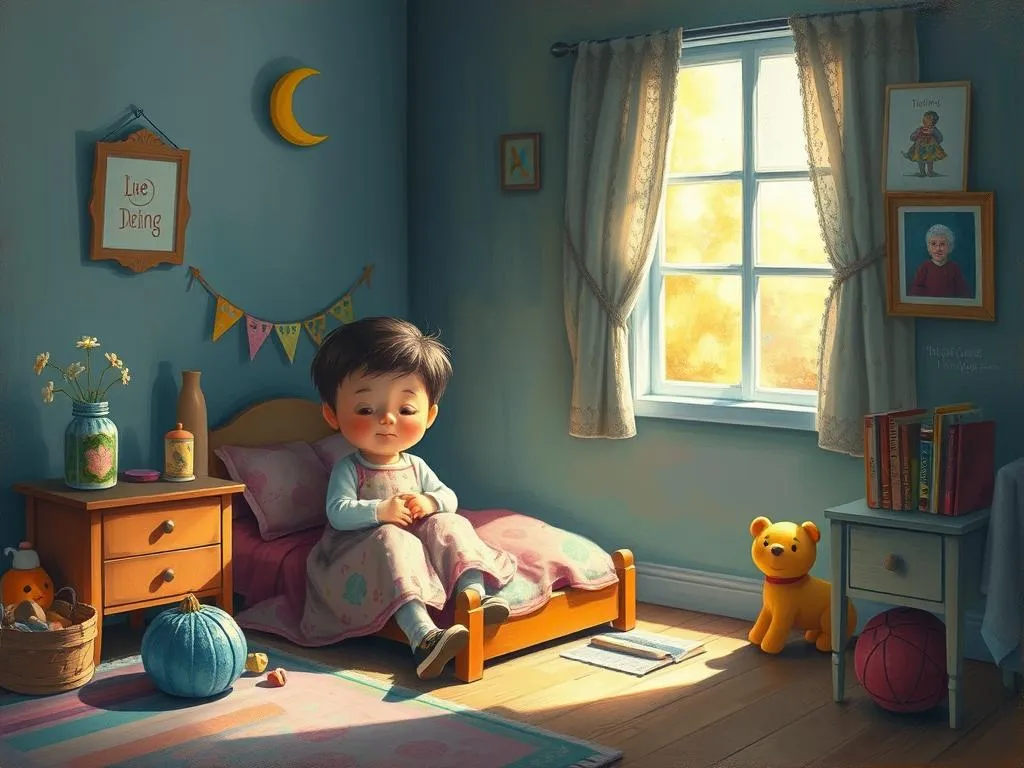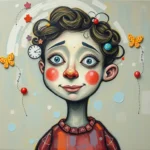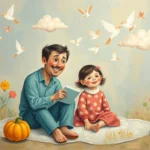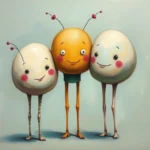
Introduction
Dreams serve as a window into our subconscious, often revealing hidden emotions, unresolved conflicts, and deep-seated desires. Among the myriad of dream themes, one that frequently captures the imagination is the child’s room. This setting, imbued with nostalgia and innocence, often symbolizes our past, our inner child, and aspects of vulnerability. Exploring the symbolism of a child’s room in dreams intrigues people because it prompts us to confront memories and feelings that may have been long buried. It invites us to explore the delicate balance between our past and present selves, shedding light on unresolved issues or unfulfilled needs.
Symbolism and Meaning
In dreams, a child’s room can be rich with symbolism. The room itself often represents a safe space, a sanctuary where childhood memories reside. It may symbolize innocence, playfulness, and the freedom of youth. However, the presence of secrets within this space can indicate deeper psychological narratives.
The toys found in a child’s room can represent the joys and simplicity of childhood but may also symbolize unresolved emotions or neglected aspects of the self. For instance, a broken toy might signify a fractured part of your childhood that needs attention, while a favorite stuffed animal could represent comfort or protection.
Another crucial element to consider is the color scheme of the room. Bright colors often evoke feelings of happiness and warmth, suggesting a nurturing environment. Conversely, darker or muted tones may indicate feelings of sadness or neglect, prompting the dreamer to reflect on their emotional state.
Moreover, the presence of clutter can symbolize overwhelm or chaos in one’s life. If the room appears messy or disorganized, it may reflect the dreamer’s current state of mind or unresolved issues from their past that need addressing.
From a psychological perspective, the child’s room may also represent the inner child, a concept that highlights the importance of acknowledging and nurturing our youthful selves. If the dreamer feels a sense of joy or peace in this dream, it may suggest a healthy relationship with their inner child. However, feelings of fear or discomfort could indicate a need for healing and integration of past experiences.
Key Scenarios and Variations
While the core symbolism of a child’s room remains relatively consistent, various scenarios can dramatically alter the dream’s meaning. For example, if you dream of discovering hidden items in the room, such as old photographs or forgotten toys, this could signify uncovering repressed memories or emotions. This scenario encourages introspection and self-discovery, prompting the dreamer to confront aspects of their past that may need healing.
Conversely, dreaming of a disorganized or chaotic child’s room might reflect feelings of being overwhelmed in waking life. It could symbolize unresolved issues that are cluttering your mental space. In this case, the dream serves as a call to action to declutter both physically and emotionally.
Another variation involves the presence of someone else in the child’s room, such as a parent or sibling. This could indicate dynamics within those relationships that need attention. For instance, if a parent is present, it may signal unresolved childhood conflicts or a desire for approval. If a sibling appears, it could reflect sibling rivalry or the need for camaraderie.
Additionally, dreaming of renovating or redecorating the child’s room can symbolize personal growth and transformation. It reflects a conscious effort to embrace change and heal from past wounds. This dream scenario often indicates that the dreamer is actively working towards integrating their past into their present life.
Moreover, if the dreamer feels a sense of loss or nostalgia upon waking from a dream about a child’s room, it could reflect a longing for simpler times or a desire to reconnect with one’s youthful spirit. This feeling may prompt the dreamer to explore how they can incorporate more joy and playfulness into their current life.
Real-Life Connections and Takeaways
Reflecting on dreams involving a child’s room can yield profound insights into one’s emotional landscape. To connect these dreams to real-life situations, consider spending time in self-reflection. Ask yourself what aspects of your childhood resonate with you. Are there unresolved issues or feelings that need attention?
Engaging in activities that nurture your inner child—such as creative pursuits, play, or spending time in nature—can also be beneficial. These activities help bridge the gap between your past and present, allowing you to embrace the joy and innocence of your youth while addressing any lingering emotional wounds.
Additionally, journaling about your dreams can provide clarity and facilitate emotional release. Writing down your thoughts and feelings about the dream can help you process any underlying emotions. It may also illuminate patterns or themes that recur in your dreams, offering further insight into your subconscious mind.
Consider discussing these dreams with a trusted friend or therapist. Sharing your experiences can foster deeper understanding and provide different perspectives on your feelings and memories. Engaging in dialogue about your dreams can also help you feel less isolated in your experiences.
Finally, remember that dreams are deeply personal and subjective. The symbolism of a child’s room will vary greatly from person to person. As you explore your dreams, remain open to your own interpretations and insights. Reflect on what resonates with you and how these dreams can guide you in nurturing your emotional well-being.
In conclusion, exploring the symbolism of a child’s room in dreams opens a door to understanding our past and present selves. By delving into the layers of meaning behind these dreams, we can uncover valuable insights that encourage healing, growth, and a deeper connection with our inner child. Embrace these dreams as an invitation to explore your emotions, memories, and ultimately, your path to self-discovery.







